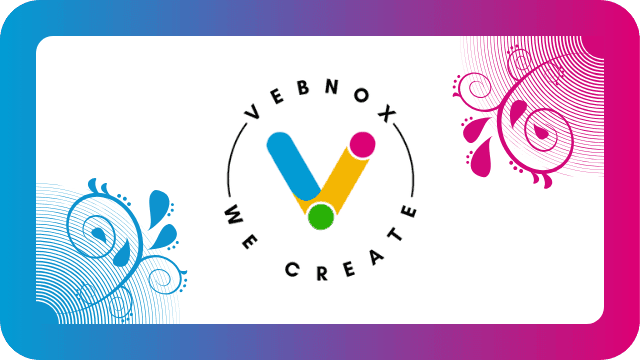Affordable SEO Strategies for Small Businesses: Boost Your Online Presence without Breaking the Bank
Table of Contents
Introduction to Affordable SEO
In today’s digital landscape, the importance of incorporating affordable SEO strategies cannot be overstated, especially for small businesses and startups. With most consumers turning to the internet for products and services, having a robust online presence is crucial. Affordable SEO not only serves as a cost-effective solution for enhancing visibility but also plays a pivotal role in customer acquisition and retention.
Small businesses often operate within tight budgets, making it imperative to adopt marketing strategies that yield high returns without significant investments. Traditional marketing methods can be expensive, and this is where digital marketing services, particularly those focused on SEO, come into play. By utilizing SEO, small businesses can organically reach a wider audience, improve their search engine rankings, and effectively compete in their respective markets.
Investing in affordable SEO strategies allows small businesses to optimize their websites, ensuring they appear prominently in search results when potential customers are looking for relevant services. Employing basic yet effective SEO techniques, such as keyword optimization, content marketing, and local SEO, can significantly boost online visibility without incurring exorbitant costs. These strategies are not only approachable but also adaptable for the unique needs of small enterprises.
This introduction sets the stage for a more in-depth exploration of various affordable SEO methods available to small businesses. Understanding the value of digital marketing can empower entrepreneurs to utilize these resources wisely, thereby enhancing their online presence and attracting more customers. As we delve into this topic, we will uncover practical tips and techniques that will enable small businesses to implement effective SEO strategies, fostering growth while remaining budget-conscious.
Understanding the Basics of SEO
Search Engine Optimization (SEO) is a vital component of digital marketing that helps businesses improve their visibility on search engines, thereby driving organic traffic to their websites. At its core, SEO involves a series of strategies aimed at optimizing various aspects of a website to meet the ranking criteria established by search engines like Google. A comprehensive understanding of SEO is essential for small businesses looking to enhance their online presence without incurring significant costs.
The key components of SEO include keywords, which are the phrases or terms that users enter into search engines. Identifying the right keywords is crucial, as they form the foundation of any effective SEO campaign. Once targeted keywords are established, businesses can incorporate them into their content, meta descriptions, and titles to improve relevance and visibility.
On-page optimization refers to the practices undertaken within a website to enhance its ranking, including content creation, keyword placement, and the optimization of imagery and headings. Conversely, off-page optimization involves activities conducted outside the website, such as backlink building and social media marketing, which help raise the website’s legitimacy and authority in the eyes of search engines.
Another essential aspect of SEO is technical SEO, which pertains to the backend of a website. This includes improving the site’s architecture, ensuring mobile-friendliness, boosting loading speed, and implementing schema markup. These elements contribute to a better user experience, which is increasingly important for search engines when determining rankings.
Incorporating a user-centric approach in SEO is critical. The ultimate goal of SEO is not merely to attract traffic but to engage users and satisfy their search intent. By understanding these fundamental principles, businesses can implement affordable SEO strategies effectively, improving their digital marketing outcomes without overwhelming their budgets.
Conducting Keyword Research on a Budget
Keyword research is an essential step in any successful SEO strategy, particularly for small businesses looking to enhance their digital marketing efforts without incurring significant costs. Understanding the right keywords to target can lead to improved search engine rankings, attracting more organic traffic, and ultimately driving sales. The following techniques and tools offer affordable methods to conduct effective keyword research.
One of the most cost-effective approaches to keyword research is leveraging free tools available online. Google’s Keyword Planner is an excellent starting point for small businesses, allowing users to discover relevant keywords, see search volumes, and evaluate competition levels. This tool provides insights into which keywords can be prioritized based on their potential to attract visitors while adapting to the financial capabilities of your business.
Other free tools, such as Ubersuggest and AnswerThePublic, also allow users to generate keyword ideas based on popular questions and search queries. These tools help identify high-value keywords that resonate with your target audience, contributing to a more effective digital marketing strategy. Utilizing these insights minimizes costs associated with paid advertising and maximizes the organic reach of your website.
In addition to these tools, small businesses can consider keeping an eye on their competitors. Analyzing competitor websites can unveil valuable keywords that those competitors are targeting successfully. By evaluating the keywords present in their headings, meta descriptions, and content, you can extract ideas for your own SEO efforts without the need for costly tools or services.
Overall, conducting keyword research does not have to strain your budget. By utilizing free or low-cost tools combined with a strategic approach to competitor analysis, small businesses can effectively enhance their online presence while adhering to a tight budget, ensuring that they remain competitive in the ever-evolving digital landscape.
On-Page SEO Techniques
Implementing effective on-page SEO techniques is crucial for small businesses aiming to improve their online presence without significant financial investment. One foundational element is optimizing page titles and meta descriptions. Page titles should be clear, concise, and reflective of the content that follows. Integrating relevant keywords naturally, such as “affordable SEO” or “digital marketing services,” can improve search rankings, making the page more appealing to potential visitors. Similarly, crafting compelling meta descriptions that summarize the information and include target keywords can enhance click-through rates from search engine results.
Header tags play a significant role in content structure, helping search engines and users understand the hierarchy of information presented on a webpage. By utilizing H1 tags for main titles and H2 or H3 tags for subsections, businesses can create a well-organized structure that is easy to navigate. An organized layout not only benefits search engines but also improves user experience—a critical factor that search algorithms consider when ranking pages.
Another essential technique involves optimizing the content itself. Unique, relevant, and valuable content should seamlessly incorporate keywords without appearing forced. Internal linking further strengthens your site’s SEO, enhancing user engagement by guiding visitors to related articles or services. This practice keeps users on the site longer, signaling quality to search engines.
Additionally, ensuring a mobile-friendly design is increasingly vital given the rise of mobile browsing. Websites must be responsive, meaning they adapt to different screen sizes while maintaining usability and functionality. Elements such as fast loading speeds, clear calls to action, and straightforward navigation contribute to a positive mobile experience.
By applying these on-page SEO techniques, small businesses can enhance their digital marketing strategies effectively and affordably. Prioritizing these actionable steps will ultimately lead to increased visibility and a stronger online presence.
Leveraging Local SEO for Small Businesses
For small businesses, harnessing the power of local SEO is essential in enhancing their online presence while remaining budget-conscious. Local SEO focuses on optimizing a business’s online visibility in local search results, enabling it to reach potential customers in its geographical area. This is particularly relevant in the context of digital marketing, where small enterprises compete with larger firms that often have more substantial marketing budgets.
One of the most critical steps for local SEO is the setup of Google My Business (GMB). This free tool allows businesses to manage their online presence, providing essential information such as location, hours of operation, and contact details. By optimizing their GMB listing with relevant keywords and categories, small businesses can improve their chances of appearing in local search results and Google Maps. Additionally, ensuring that the information is accurate and up-to-date is vital for maintaining credibility and attracting local customers.
Moreover, local backlinks are an integral component of an effective SEO strategy. By building relationships with local organizations, businesses can acquire links from reputable sites within their community. This not only enhances their online authority but also signals to search engines that the business is a trusted source in the local area. Engaging in community events or sponsoring local initiatives can create opportunities for these valuable backlinks.
Customer reviews can also significantly influence local SEO. Encouraging satisfied clients to leave positive reviews on platforms such as Google and Yelp can help improve search visibility and attract new customers. Quality reviews not only enhance the business’s reputation but also serve as a ranking factor in local search algorithms. Therefore, prioritizing these elements will allow small businesses to compete effectively in their local markets while employing affordable SEO strategies.
Building Quality Backlinks Affordably
In the realm of digital marketing, acquiring quality backlinks stands as a crucial yet often challenging objective for small businesses seeking to enhance their online presence. Utilizing affordable SEO strategies can significantly mitigate associated costs while still yielding substantial results. A primary method to obtain quality backlinks is through guest blogging. By offering valuable content to related blogs, businesses can naturally create links to their own websites. This not only strengthens their online authority but also establishes connections within their industry.
Another promising avenue involves leveraging social media connections. Small businesses can actively engage on platforms such as LinkedIn, Twitter, and Facebook to interlink with peers and potential partners. By sharing insightful articles or industry-related information, businesses can attract interest and potentially earn backlinks through shares, likes, and mentions. This relational approach often proves to be not only effective but also cost-efficient, as it primarily relies on existing online communities and networks.
Participating in online forums and discussion boards is another effective strategy for building backlinks affordably. By contributing to conversations relevant to their niche, small businesses can create profiles that include links back to their websites. It’s important, however, to prioritize quality over quantity by engaging meaningfully with the content and topics discussed. This will not only enhance your reputation but also attract organic traffic, reinforcing your credibility and expertise in the field.
Effective outreach is pivotal in successful link-building. Whether through email campaigns to request backlinks or personalized messages to influential webmasters, maintaining authenticity and professionalism can significantly increase success rates. By implementing these strategies, small businesses can effectively improve their SEO efforts without incurring high costs, allowing them to thrive in today’s competitive digital landscape.
Making Use of Free SEO Tools and Resources
For small businesses striving to enhance their online visibility, the utilization of free SEO tools and resources can significantly bolster digital marketing efforts without straining budgets. Numerous platforms are available to assist in various aspects of search engine optimization, providing valuable insights that can help in formulating effective strategies. These tools cover areas such as analytics, keyword tracking, and website auditing, making them indispensable for affordable SEO management.
One of the most widely used free tools is Google Analytics. This powerful platform offers detailed insights into website traffic, user behavior, and conversion metrics. By analyzing this data, small businesses can identify which digital marketing strategies are effective and which areas require improvement. Another essential tool is Google Search Console, which helps monitor a website’s presence in search engine results. It provides valuable information about how Google views the site, including indexing status and optimization issues that need addressing.
Keyword research is crucial for SEO success, and using free resources can simplify this process. Tools like Ubersuggest and AnswerThePublic allow users to uncover relevant keywords and phrases that potential customers are searching for. Leveraging these keywords in website content can enhance ranking in search engine results, thereby attracting more organic traffic without the need for expensive keyword research tools.
Moreover, website auditing tools such as Screaming Frog’s SEO Spider can identify technical issues hindering SEO performance. It explores the website to discover broken links, duplicated content, and other factors that can negatively impact user experience and search rankings. By regularly conducting audits and addressing the findings, small businesses can strengthen their digital marketing efforts without incurring additional costs.
In conclusion, small businesses can achieve effective SEO and improve their online presence by strategically utilizing free tools and resources. This approach not only conserves budgets but maximizes engagement and visibility in a competitive digital market.
Creating High-Quality Content on a Budget
In the realm of affordable SEO strategies, creating high-quality content emerges as a cornerstone for small businesses aiming to enhance their digital marketing efforts without substantial investment. One effective approach to generating engaging content is through ideation that revolves around the needs and interests of the target audience. Conduct thorough research to identify trending topics in your industry that resonate with your potential customers. Utilize tools like Google Trends or social media insights to pinpoint what questions or issues your audience is facing, allowing you to tailor your content precisely to meet those demands.
Furthermore, repurposing existing content can be a cost-effective method to maximize your resources. For example, transform a well-received blog post into various formats, such as videos, infographics, or podcasts. This not only broadens your reach but also reinforces your brand message across different platforms. Consistency is key in digital marketing, as regularly updating your content fosters stronger engagement and establishment of authority in your niche. A content calendar can help plan and schedule these updates, ensuring a steady flow of information that keeps your audience engaged.
Another strategy to consider is leveraging user-generated content (UGC). Encourage your customers to share their experiences with your products or services on social media. This provides authentic testimonials while simultaneously reducing content creation costs. By incorporating UGC into your digital marketing strategy, you strengthen community involvement and build trust among potential clients. The combination of well-researched ideation, repurposing strategies, and user engagement creates a robust content marketing plan that is both high-quality and affordable, solidifying your online presence without straining your budget.
Measuring and Tracking SEO Success
For small businesses looking to enhance their online presence through affordable SEO strategies, measuring and tracking success is paramount. By evaluating specific metrics, businesses can determine the effectiveness of their digital marketing efforts without incurring significant expenses. Organic traffic, conversion rates, and keyword rankings are three crucial metrics that serve as key indicators of SEO performance.
Organic traffic refers to the number of visitors that reach a website through unpaid search results. This data is vital for assessing how well an SEO strategy is performing. Tools such as Google Analytics provide insights into organic traffic trends, allowing businesses to identify which pages are attracting visitors. Tracking this metric over time enables small businesses to evaluate the impact of their content and make informed decisions about future digital marketing initiatives.
Conversion rates, which measure the percentage of visitors taking a desired action—such as making a purchase or signing up for a newsletter—are equally important. A strong conversion rate signifies that an SEO strategy is not only driving traffic but that the traffic is relevant and engaged. Small businesses should utilize conversion tracking tools, such as Google Tag Manager, to monitor these metrics effectively and adapt their digital marketing strategies accordingly.
Keyword rankings also play a significant role in assessing SEO success. Monitoring how well specific keywords perform can help businesses understand which terms resonate with their target audience. Free or affordable tools like Ubersuggest or SEMrush can assist in tracking keyword rankings with ease. Regularly reviewing this data allows for adjustments to be made to optimize content further, ensuring that it remains aligned with emerging trends in search queries.
In conclusion, by leveraging these metrics and utilizing cost-effective tools, small businesses can measure and track their SEO progress. This ongoing evaluation allows for continuous improvement in their digital marketing strategies, ultimately leading to enhanced online visibility and engagement.





Comments are closed